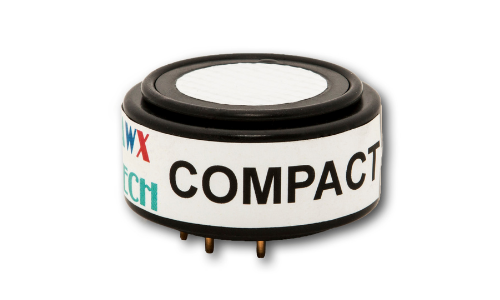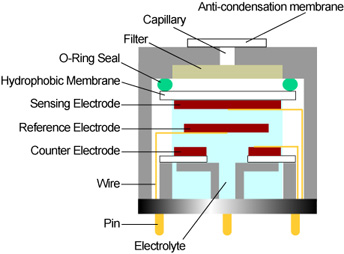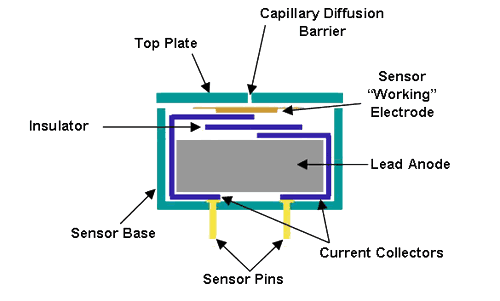Hydrogen 7 Series Gas Sensor (H2)
Home | 7 Series Standard AWX Sensors | Hydrogen 7 Series Gas Sensor
The Hydrogen 7 Series Gas Sensor (H2, Compact)
The Hydrogen 7 Series Compact sensors are suitable for most applications where size is not a concern. With a larger body giving longer life and exceptional performance, it is ideal for commercial and industrial applications.
Available in toxic and oxygen formats.
Airwave Electronics proudly carries the complete AWX product line. To learn more about which sensors suit your unique needs, contact us or download the brochure.
- Three Sizes of Sensors Available
- Oxygen and Toxic Gases
- OEM Private Labeling Available
- Ships from North America
Nominal Range 0 – 1000 ppm
Maximum Overload 2000 ppm
Expected Operation Life 2 years in air
Output Signal 30 +/- 10 nA/ppm
Resolution <1.2 ppm
Temperature Range – 40 °C to + 50 °C
Pressure Range Atmospheric +/-10 %

t90 Response Time < 30 sec
Relative Humidity Range 15 % to 90 % R.H. non-condensing
Typical Baseline Range (pure air, 20°C) – 8 ppm to +8 ppm
Maximum Zero Shift (+20°C to +40 °C) 3.0 ppm equivalent
Expected Long Term Output Drift < 2 % signal loss/month
Recommended Load Resistor 10 Ohm
Bias Voltage Not required
Repeatability < 2 % of signal
Output Linearity Linear
Weight ~ 13 g
Position Sensitivity None
Storage Life Six months in container
Recommended Storage Temperature 5 °C – 20 °C
Warranty Period 12 months from date of dispatch


Toxic Gas Sensors:
The toxic sensor works by reacting to the concentration diffused through a permeable membrane and reacting to chemicals to produce a linear output proportional to the concentration. In addition, the toxic sensor incorporates a third reference electrode.
The reference electrode maintains the potential so the output remains fixed in respect to the sensing electrode. This maintains a stable baseline with no effects to atmospheric pressure.
Oxygen Sensors:
The oxygen sensor works by reacting to the concentration of oxygen diffused through a permeable membrane and reacting to chemicals to produce a linear output proportional to the concentration.
